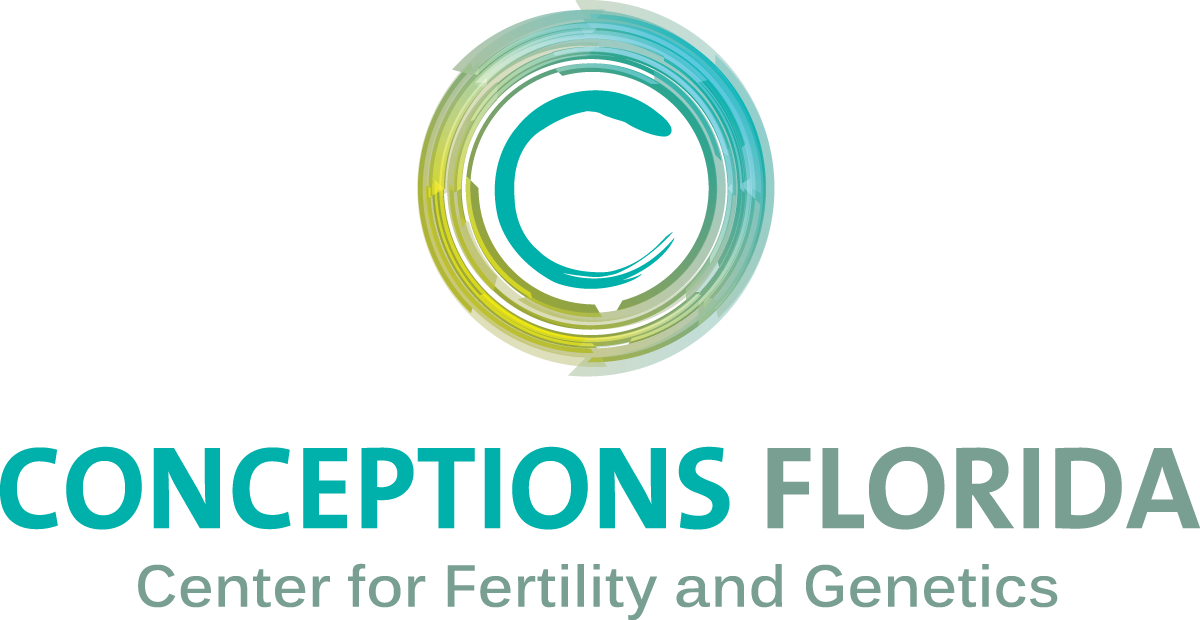By Juan P. Alvarez, MD
Uterine transplants. Egg freezing. Pre-Implantation Genetic Testing.
The past 10 years of major fertility advances have dramatically changed how we think about fertility options and family planning, particularly for the LGBTQ+ community.
Equality for all now means a family for all regardless of race, religion, sex, gender identity/expression and sexual orientation. Lesbian women, gay men, and transgender individuals have the option of using their own gametes (egg or sperm) or donor gametes (egg or sperm) to create their families.
At Conceptions Florida in Miami/Miramar, we have extensive experience working with same-sex couples who are looking to start or grow their families through donor eggs, sperm or gestational surrogate.
Here are the most common issues raised in the course of treating lesbian, gay, bisexual, transgender and queer (questioning) patients.
FERTILITY OPTIONS FOR LESBIAN WOMEN
There are two types of treatments currently available:
- Intrauterine insemination (IUI): This cycle involves either following a woman’s natural ovulation (natural cycle) or taking oral medication (stimulated cycle) * for 5 days followed by bloodwork and ultrasound in order to determine the precise date in which the IUI should take place. This treatment can be done with either a known or anonymous donor sperm.
*Although typically treated with oral medication, injectable medication might also be used.
- In Vitro Fertilization (IVF): There are several different options depending on the individual’s and or couple’s preference. Known or anonymous donor sperm can be used for fertilization. Embryos can either be transferred to the female whose eggs were used for fertilization or to the partner (reciprocal IVF).
FERTILITY OPTIONS FOR GAY MEN
Currently, the fertility option of choice for gay men is IVF.
In Vitro Fertilization (IVF): This type of cycle offers several different options depending on the patient or couple’s preference. Through IVF, a known or anonymous egg donor is stimulated to extract eggs. The eggs are then fertilized in the lab by the male patient or his partner’s sperm. In instances where both male partners would like to be biological fathers, the eggs retrieved from IVF can be separated and fertilized by sperm from both partners. The fertilized embryos are then transferred to a gestational carrier to carry the pregnancy.
IVF Treatment Options for Both Lesbian Women and Gay Men:
- In Vitro Fertilization (IVF) cycle involves a female patient undergoing IVF treatment, where a combination of medication and surgical procedures help the sperm fertilize the egg. The fertilized embryo is then transferred back into the same patient to carry the pregnancy. This cycle requires the female patient to have a cervix, uterus, and vaginal canal.
- Reciprocal In Vitro Fertilization (IVF) cycle involves a female patient undergoing IVF treatment, where a combination of medication and surgical procedures help sperm fertilize the eggs. The fertilized embryo is then transferred back to a female partner’s uterus to carry the pregnancy. This cycle requires the recipient female patient to have a cervix, uterus, and vaginal canal.
- Gestational Carrier In Vitro Fertilization (IVF) cycle involves a female undergoing IVF treatment; but instead of transferring the fertilized embryo back into her uterus, the embryo is transferred to a different female (known or unknown to the patient/couple) to carry the pregnancy. This cycle does not require the primary female to have a cervix, uterus, or vaginal canal.
- Donor In Vitro Fertilization (IVF) cycle involves choosing a known or anonymous female to undergo IVF treatment to retrieve eggs.
TRANSITIONING OR TRANSITIONED?
During the process of transitioning, there are several factors that can affect your fertility future or ability to conceive.
- Estrogen and Testosterone: These hormones, used in the form of medication, play a major role in how a patient will transition physically and internally to the desired gender. Naturally produced within the body, these hormones also play a major role in reproduction. Our doctors will review the dosing, duration, and metabolic response to these medications when determining your treatment options. Stopping your current medications may be required depending on your particular treatment plan.
- Surgical transition: The type of surgical procedure performed may or may not have an impact on the treatment options available. Cosmetic surgeries such as breast augmentation, facial reconstruction, fat distribution, etc. Have a minimum impact on treatment options. Larger invasive procedures that physically alter the human body, such as vaginoplasty or phalloplasty, can greatly restrict the treatment options available.
- Fertility preservation: We strongly encourage any patient considering a transition, either surgical or chemical, to consider preserving their fertility first. Freezing sperm or eggs prior to transitioning will provide you with a wider variety of treatment options.
- Sperm Freezing involves freezing sperm cells from ejaculated or testicular extraction for fertility preservation prior to feminine transitioning hormone therapy for trans-women.
- Egg Freezing involves freezing egg cells by undergoing IVF treatment for fertility preservation prior to masculine transitioning hormone therapy for trans-men.
THINGS TO KNOW IN PREPARATION FOR YOUR FIRST CONCEPTIONS APPOINTMENT
Ready to take your first steps towards starting a family?
Our office wants to make your experience a positive one. Here are a few things we want you to know in preparation for your first visit.
Gender: Our country has taken giant steps towards becoming more accepting of all identities. But the medical field is still regulated by strict guidelines. Although a transgender man identifies as male, biologically speaking, he is still classified as a female due to being born with ovaries and a uterus. As a result, different guidelines, insurance regulations, and procedures will reflect the gender assigned at birth.
Name change: Your chosen name may not always be your legal name. Our office will do everything possible to respect your preference and refer to you by your chosen name. However, when it comes to insurance, procedures, documentation, medications, etc. We are required to use your legal name.
Pronouns: Our staff has been trained in the proper use of gender-neutral pronouns such as “they, them, and theirs”. Sometimes in life, new ways of thinking and thought processing take time before it comes naturally. Should we accidentally use the wrong pronoun, please keep in mind it is not intentional and we will take proper measures to prevent future occurrences.
Personal and intimate discussions: Conversations involving reproductive organs, sex, fertility, and pregnancy are a normal and essential part of the doctor-patient relationship. At times, these conversations may feel uncomfortable and even embarrassing. Our goal is to better assist you with providing the best options available and keep the discussions as professional as possible.
Honesty: Certain factors can greatly affect future fertility and reproductive options. We ask that you bestow your trust in us, and be upfront about any types of medications, procedures, or lifestyle choices you have made in the past, the present or are considering for the future.
Physicians: While our three talented and highly trained physicians are available to treat all patients, some LGBTQ+ patients may prefer to schedule an appointment with Dr. Juan P. Alvarez, who is gay (and Hispanic). For those who prefer to see a female, Dr. Jessica Bauer might be the right choice. Please specify your preference when scheduling your appointment.
Have we answered all your questions? While our goal is to address the most common concerns, we encourage you to contact us directly for specifics, new options and the support you will need as you go through this process.
Because we believe every person should have the opportunity to start a family.
Prefer to read this info in an eBook? Download a free copy today or call us at (305) 446-4673 to schedule an appointment with one of our specialists.




